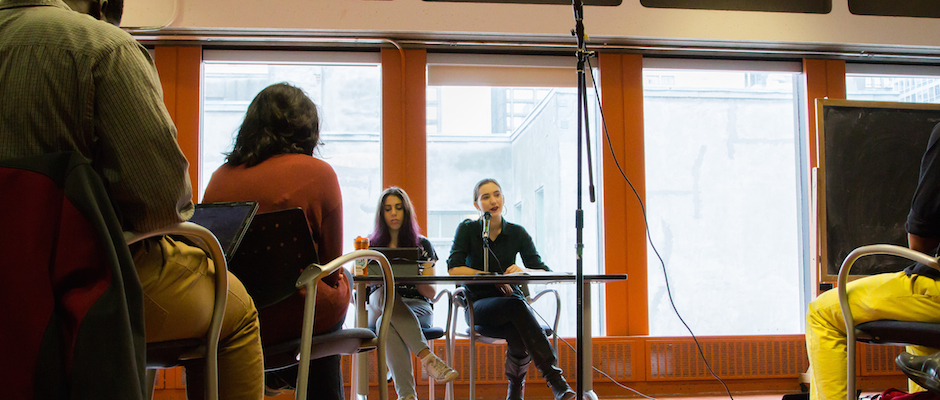In the past several months, our ability to connect with others and stay in touch with current issues has been greatly hindered by the pandemic. Like many others, I found comfort in social media platforms like Instagram because of the abundance of information, resources, and sense of community they could offer.
On my quest to learn more about incorporating new practices of sustainability into my lockdown routine, Instagram offered me inspiration from people who, like all of us, were trying to make the most out of being stuck at home. As summer came along, however, something changed; it was like I woke up one morning and realized how toxic Instagram had become for me. A lot of what I saw online, from educational posts to peoples’ stories, seemed too black-and-white and rehearsed. I started to feel like we were all blindly following some invisible force telling us how to act, what to share, what to believe, how to support causes, and how to be sustainable.
…although we like to think that we are not guilty of these behaviours, most of us are perpetrators of performative activism and virtue signaling on some level.
Once I noticed this, I couldn’t unsee it. It made sense: by trying to do the right thing in the midst of chaos, we were all conforming to what we thought we were supposed to do in order for the world to know we weren’t just staying home and doing nothing. But in doing so, we were actually perpetuating a cycle of performative activism, environmentalism, and virtue signaling. In order to seem involved, we joined in on the trend of engaging in empty practices of activism, and when others righteously showcased their activism as superior, we criticized ourselves and others for not doing enough. Through social media’s role as a sort of “activism archive”, these acts have been exemplified by, for example, students posting pictures of the climate march to prove attendance and environmental-consciousness. And although we like to think that we are not guilty of these behaviours, most of us are perpetrators of performative activism and virtue signaling on some level.
Specifically regarding sustainability, these behaviours have increased mostly because the majority of discourse around environmentalism on social media focuses on a collection of often inaccessible fads—such as shopping and eating local and organic, adopting strict diet labels, buying metal straws, and more. Because of our natural tendency to care about how others see us, we try to conform to these practices and showcase them on social media to prove how environmentally-friendly we are. In doing so, we reinforce the misconception that there’s a one-to-one correspondence between following these mainstream practices and being sustainable and moral, with little regard for the effects of and intentions behind our actions.
This mainstream view of sustainability has cast a shadow over corporate culpability by calling on individuals to take certain actions to save the planet, Not only that, but it has also obscured other factors—affordability, proximity to certain stores, time allowance, underlying health reasons, and family dynamics—that are involved in one’s decision to engage in sustainable practices. This has made individuals who have the privilege of not being negatively affected by these factors feel good about being branded as “woke,” sustainable, and on-trend. As a result, more privileged individuals are empowered to uplift others who are able to follow similar lifestyles and put down those who can’t.
This inability to come to terms with our sometimes unethical (but human) actions and our need to appear a certain way on social media is what leads us to perform online and project our self-criticism onto others.
In the midst of this, people who make daily efforts to reduce their environmental footprint—by walking, biking, reusing and recycling, composting, or taking shorter showers—but do not conform to the types of sustainable practices that are more easily marketable on social media, are considered less ethical. This furthers the idea that non-mainstream actions are less “green” or impactful than the more inaccessible or unaffordable sustainability trends.
To this day, many of us fear criticism on social media. We may feel worried about facing backlash online if we expose our less-sustainable actions. We are eager to bash fast-fashion through eye-catching infographics but secretly enjoy the Urban Outfitters sales section once in a while. This inability to come to terms with our sometimes unethical (but human) actions and our need to appear a certain way on social media is what leads us to perform online and project our self-criticism onto others.
As we cross the one-year mark since the start of lockdown, reflecting on the limitations and benefits of social media is important.
When we learn how to be forgiving of ourselves and others, we can finally start to move towards a culture of encouragement that focuses on the tangible effects of our actions rather than how they make us look. In recognizing that individual circumstances may get in the way of how our environmental-consciousness manifests, we can change the script around mainstream sustainability and build a more inclusive and sustainable society.
In my attempt to rebuild a healthy, symbiotic relationship with social media, I have been trying to be less selective about how I present myself online, not only to show others a more authentic and unfiltered version of myself but also to normalize exposing so-called “flaws” and “mistakes” for what they really are: essential parts of who I am. As we cross the one-year mark since the start of lockdown, reflecting on the limitations and benefits of social media is important. We have the ability to connect with the world in a time when everything and everyone seems so distant and to learn as much as we want about global issues. At the end of the day, we are lucky to be able to choose what we want our feeds to look like. This freedom, for better or for worse, can make or break our social media experience.



